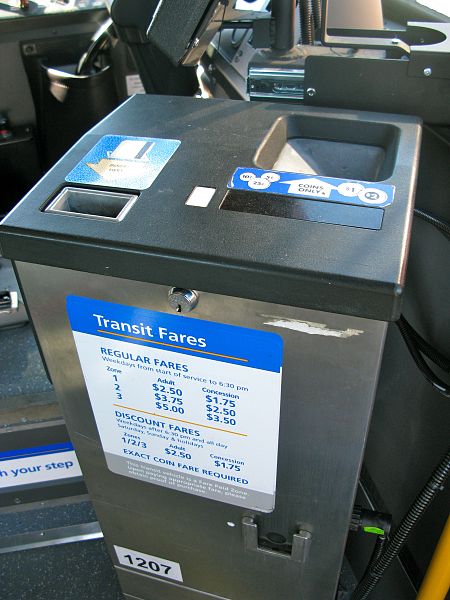Excludability is the degree to which a good, service or resource can be limited to only paying customers, or conversely, the degree to which a supplier, producer or other managing body can prevent consumption of a good. In economics, a good, service or resource is broadly assigned two fundamental characteristics; a degree of excludability and a degree of rivalry.
Air, whether it is clean or polluted, cannot exclude anyone from its use, and so it is considered a non-excludable "good". A good can be non-excludable regardless of how desirable it could be to be excluded from consuming it (such as smog or pollution in a city).
Public transit (bus) farebox, Vancouver
In economics, a public good is a good that is both non-excludable and non-rivalrous. Use by one person neither prevents access by other people, nor does it reduce availability to others. Therefore, the good can be used simultaneously by more than one person. This is in contrast to a common good, such as wild fish stocks in the ocean, which is non-excludable but rivalrous to a certain degree. If too many fish were harvested, the stocks would deplete, limiting the access of fish for others. A public good must be valuable to more than one user, otherwise, its simultaneous availability to more than one person would be economically irrelevant.
Lighthouses are often used as an example of a public good, as they benefit all maritime users, but no one can be excluded from using them as a navigational aid.
Yosemite National Park, an example of an environmental good.




